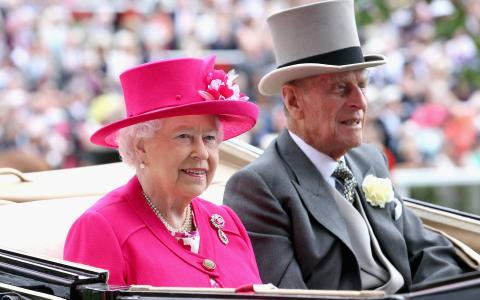
Seven decades of partnership had to end sometime. You can build the perfect team and sooner or later history will take it away.
Queen Elizabeth and Prince Philip were together twice as long as Warren Buffett and Charlie Munger. Now the queen faces the future without a counterweight or collaborator.
Every family goes through survivor strains when a partner dies. When the assets and operations reach dynastic scale, the impact becomes more complex.
Even when the deceased was only a silent partner, the absence can leave the most strident survivor off balance and uncertain. Sometimes it’s liberating in the long run, but more immediately the transition brings a lot of questions without habitual answers.
That’s where the queen is now. It doesn’t matter whether Philip actively weighed in on the way they raised their kids and presided over a nation.
He didn’t need to be in the formal line of succession to cast a big shadow across her entire royal career. He was usually in the room, one way or another.
She turns 95 in a few days. Imagine Charlie Munger carrying on after Buffett or the other way around.
This is a dangerous time for any organization. When she dies or abdicates (“retires”), the formal succession plan takes over and continuity will be maintained as well as humanly possible.
But right now she’s still the boss and she’s adrift. If you’ve watched a HNW client weather the death of a longtime spouse, you know how this goes.
The pace of her work had already slowed down before he went into the hospital. She was less engaged in the “family firm,” leaving a leadership hole behind.
Nobody could easily step up. Nobody did. Whatever the various royals have been doing, the only public impact was Harry and Meghan running for the door.
Charles, the literal heir apparent, is largely AWOL, stung by his son’s defection and his own waning youthful vigor.
He’s 72. Rumor has it he’s too reactionary to rule modern Britain, but rumor says a lot of things.
Unfortunately, his persistence in the succession plan has kept William or anyone else from practicing their own leadership skills. There’s no crisis to test future kings, no challenge to meet.
When things got serious, the queen took over. Maybe she still can. I don’t think she’ll throw herself into her role now that Philip is gone, but you never know.
If she has advisors she trusts, their chance to urge her to focus on dynastic continuity ended decades ago. That’s a lesson we can all take from this.
Pretending a client, even a beloved one, will live forever is always going to be foolishness in the long run. We need to spend more time with the heirs.
They’re the ones who are going to ultimately decide whether generational fortunes shrink or grow. The monarchy is a generational enterprise. So are most families.
A dynasty without a chief executive is only a bunch of scattered relatives and their assets. Plenty of countries have hereditary aristocracies but no monarch.
What holds a dynasty together is an ethos nourished by active management. If the head of the family can’t do it, outside advisors can be hired . . . the family office takes over raising the kids and deciding how to shape their lives.
Multiple authority figures can bring flexibility as well as conflict. Philip and the queen created a certain stable dynamic, balancing against each other to keep the family on track.
The specific nature of their interactions is the stuff of tabloid speculation, but one way or another, for better or for worse, the way they interacted shaped that family.
Now she needs to learn to live according to different rules of emotional gravity. That’s tough at any age even when you have all the help in the world.
She can go on. But now there’s one fewer link in the dynastic chain. One day, she’ll be gone as well. As you know, sometimes losing a partner hastens that process. In other cases, the survivor embraces change and blooms.
Either way, the time to strengthen the chain below her has passed. I hope it isn’t too late for your clients.
Talk to the kids. Talk to the grandkids. Figure out who they are. Will they disappoint or dazzle?
Even if you don’t live to see them step up, these are the people your own professional heirs will need to deal with. That’s your career legacy.
It’s more than sentiment. It’s the intrinsic long-term value of your firm. Are you leaving the next generation of clients in stronger shape than their parents?
The queen inherited an empire in crisis. Now the only thing preventing a sequel is her. And she’s mortal.
And as for you, you do have a succession plan, right?



